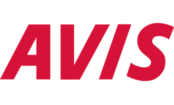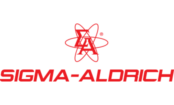Safeguard Protected Health Information with HIPAA Compliant Cloud Fax

Companies that send, receive, and store personal health information have to comply with a number of regulations – one of the most important and most far-reaching in the United States is HIPAA. Read on if you want to learn more about why HIPAA compliant faxing is critical for the healthcare industry and why you should use cloud fax for secure and efficient communication.
What is HIPAA?
Why is HIPAA Compliant Fax Important?
Traditional fax has a number of shortcomings that make HIPAA compliance difficult. Faxes without cover sheets, misdialed numbers, paper faxes thrown away; these common errors can lead to high costs.
In general, HIPAA outlines which entities are bound by the regulation, what types of information are covered, and which precautions a provider should take to ensure that patient information is protected.
General Rules for a HIPAA Compliant Fax Service
- The confidentiality, integrity, and availability of all ePHI created, received, retained, or transmitted must be ensured.
- Identification of and protection against reasonably anticipated threats to information security and integrity.
- Protect against reasonably anticipated, impermissible uses or disclosures.
- The compliance of the employees with the regulations must be ensured.1
As a state of the art surgery center, we rely on fax to retrieve the majority of our cases, therefore, up-time and reliability are critical for our business. Since we switched to Retarus we have experienced zero downtime, reduced cost, and increased efficiencies.
Penalties and Fines
HIPAA violations can carry steep financial penalties. Depending on the level of culpability, HIPAA violations can carry penalties from $117 to more than $58,000 per record – capped up to 1.71 million Dollar per year. 2
Patient Confidence
HIPAA Compliance Categories
Administrative Safeguards
- Security Management Process
- Security Personnel
- Information Access
- Audit Controls
- Workforce Training & Management
- Evaluation
Physical Safeguards
- Facility Access and Control
- Workstation and Device Security
- Data Center Security Measures
- Employee Data Access Restrictions
Technical Safeguards
- Access Control
- Integrity Controls
- Transmission Security
- Data Security and Compliance
Traditional Fax vs. Cloud Fax
| Traditional Fax (paper based fax machines) |
Cloud Fax | |
|---|---|---|
| Protection of Metadata | Fax metadata left in machine memory is unencrypted and unprotected. If an unauthorized person accesses it, the provider violates HIPAA physical safeguards around the workstation and device security. | Transmission Security
Data Encryption
|
| Access Controls | Paper faxes left unattended on fax machines may be viewed or taken by unauthorized personnel, in violation of HIPAA technical safeguards around access control, as well as physical safeguards. | Cloud Fax may include measures that protect access to PHI, incl. role assignment, access administration and review, and account changes – so that any change in personnel at the provider is reflected by immediate changes in access to PHI. |
| Audit Trail | HIPAA compliant fax requires that covered entities track who is viewing and using PHI for patient care. Paper faxes require manual audit trails that must be created, maintained, and reviewed to ensure compliance with technical safeguards for audit controls. | Cloud fax allows healthcare providers to build secure, confirmed audit trails to prove HIPAA compliance. These platforms can also include reporting to monitor faxes to ensure they’re successfully sent and received, as well as grant permissions for access to sensitive health information. |
| Risk of Manual Entry Errors | When a fax is sent to the wrong number, the sender violates HIPAA administrative safeguards around information access – even if it is an honest mistake. | As the fax numbers are stored in a central application, there is no risk of mistakenly sending to wrong numbers. |
| Archiving | When storing data long-term, there are HIPAA safeguards regarding access levels, access tracking and data encryption. As described above, using paper fax and physically archiving data can lead to violations of those safeguards. | Long-term electronic archiving protocols eliminate the need to physically archive, protect, and destroy PHI, ensuring that providers comply with the most stringent data security and integrity requirements. |
How Cloud Fax Improves HIPAA Compliance
Transmission Security
Data Encryption
Access Controls
Archiving
Audit Controls
Secure Healthcare Fax Transmissions with Retarus Cloud Fax
HIPAA compliance can be complicated – ensuring the safety of protected health information when it is created, transmitted, and stored requires structure, resources, and monitoring to ensure data integrity and security.
However, these concerns should not keep healthcare providers from taking advantage of the benefits of cloud fax. With a HIPAA compliant cloud fax provider, healthcare companies can actually improve their compliance position: with better controls, encryption, and auditing functionality.
Cloud fax provides a number of benefits over traditional fax as well, including lower costs, easy scalability, data storage, and more. Retarus Cloud Fax Services take full advantage of Retarus’ Messaging Platform and owned data centers to provide enterprise-level quality for healthcare companies of all sizes. Control costs, improve service and reduce risk of exposure to HIPAA and other regulatory violations with Retarus Cloud Fax Services.
You May Also Be Interested In
Retarus Cloud Fax
Find out what makes Retarus Cloud Fax excellent
Digitizing Incoming Fax Documents
Receive and automatically process incoming fax documents digitally in your business application.
Securely Transmit Lab Results
Retarus Cloud Fax offers a solution for faxing doctor reports via a secure channel.
Learn More About the Benefits of Retarus
Sources:
1: https://www.hhs.gov/hipaa/for-professionals/security/laws-regulations/index.html
2: https://www.hipaajournal.com/hhs-increases-civil-monetary-penalties-for-hipaa-violations-2019-inflation/









